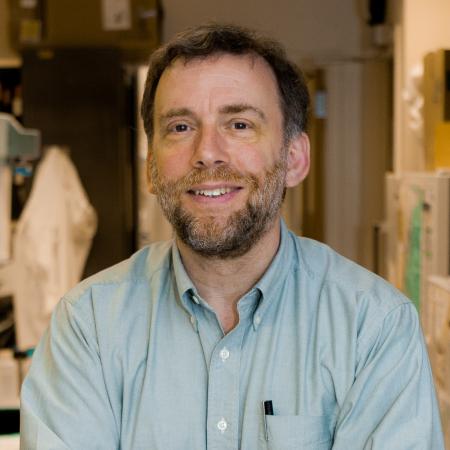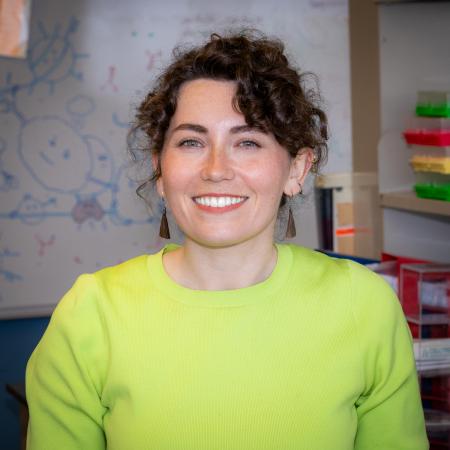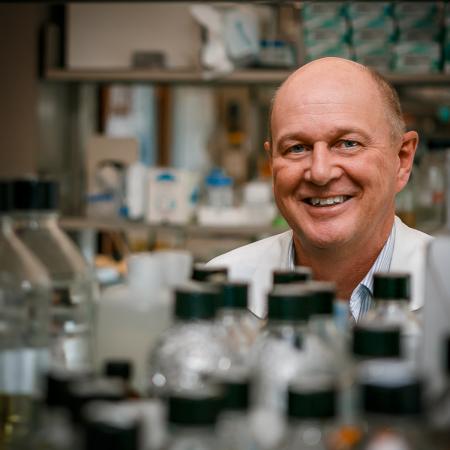Researchers in Molecular Genetics, using model systems including coronavirus, yeast, and mice, employ both focused and genome-wide approaches to investigate gene function and mechanism. Areas of investigation include virus replication and assembly; mobile DNA elements; and transcriptional regulation and chromatin structure.
Associated Researchers

Thomas M. Bartlett, PhD
Cell biology of bacterial pathogens
We study the molecular basis of bacterial growth and cell shape determination in critical bacterial pathogens with “unusual” shapes. Our research helps us to understand how bacterial shape contributes to pathogenesis, and identifies vulnerabilities in understudied bacterial growth plans.

Todd Gray, PhD
Molecular Genetics of Mycobacteria
We use innovative molecular genomic approaches to address fundamental questions of mycobacterial biology. Our findings shed new light on the evolution and function of mycobacterial genomes, accelerating tuberculosis research.

Paul Masters, PhD
Molecular Genetics of Coronaviruses
We use genetics and molecular biology to learn how coronaviruses, a family of RNA viruses including the agents that cause SARS and MERS, replicate their genetic material and assemble into virions during infection.

Anil K. Ojha, PhD
Mycobacterial Persistence and Pathogenesis
We investigate the influence of biofilm growth on the mechanisms of pathogenesis, persistence and drug tolerance in mycobacterial pathogens, with particular emphasis on Mycobacterium tuberculosis.

Siân Owen, PhD
Bacteriophages & Mobile Genetic Elements
My research explores the molecular biology of bacterial viruses (bacteriophages) and other mobile genetic parasites with a focus on how they shape the ecology and evolution of bacteria.

Jon Paczkowski, PhD
Microbial Signal Transduction and Cell-cell Communication
We seek to understand bacterial communication by investigating how bacteria interpret autoinducers and elicit appropriate gene expression, and, more globally, to understand how all organisms decode environmental stimuli.

Janice D. Pata, PhD
Polymerases, Mutations, and the Evolution of Antimicrobial Drug Resistance
We study the molecular mechanisms by which multiple DNA polymerases replicate bacterial genomes completely, with high accuracy and tolerance for DNA damage, yet also create mutations that give rise to antibiotic resistance.

Joseph T. Wade, PhD
Microbial Gene Expression
We study gene regulation in bacteria, with a focus on genome-scale approaches. We are interested in regulation of transcription, the function of non-coding RNAs, and leaderless translation initiation.

Keith M. Derbyshire, PhD
Molecular Genetics of Mycobacteria
We study mycobacteria and use molecular genetic approaches to investigate: global gene expression, at both transcriptional and translational levels; the mechanism of distributive conjugal transfer; and synthetic genetic interactions.